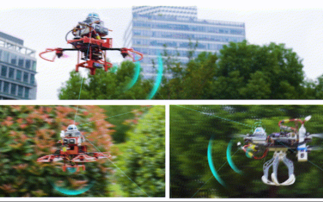
While cloud computing is undoubtedly here to stay, the term "declouding" is increasingly cropping up among technology circles.
Organisations may have rushed to the cloud - as a means of transformation or survival, particularly during the Covid-19 pandemic and the need for remote access. While some workloads are well-suited to cloud computing, others may function better elsewhere.
As a result, a growing number are considering "declouding". Also known as "unclouding", declouding involves organisations moving some of their workloads from the public cloud to on-premises, hybrid cloud or private cloud.
Organisations may have different reasons for choosing to decloud, including performance, cost optimisation, data regulation, and security issues from poor configuration. A greater need for control or customisation of workloads not offered by the public cloud may also be driving factors.
Therefore some may choose to move workloads back on-premises that require low latency, involve legacy applications, or where security is paramount.
Returning from the cloud
While the majority of organisations surveyed have not yet moved workloads away from the cloud, Computing's research revealed that 13 per cent have, with 9 per cent having plans to do so in the future. It is likely those considering to decloud will increase in the coming years, given widespread concerns around costs, skills, and integration.
Databases, web-facing application and HPC/GPU are the most common workloads organisations are moving back on-premises. These are generally more complex workloads, which may be unsuitable for a cloud environment and work better locally, which organisations may have discovered through experience.
The most common reason for declouding is cost, chosen by 65 per cent of respondents, with 24 per cent choosing greater control or customisation, and integration. "Other" responses included internet latency and performance. Security, difficulties migrating legacy or bespoke applications, vendor lock-in, and a lack of cloud talent within the organisation were declouding motivations for only 6 per cent respectively.
While the benefits of cloud technology may allow for cost savings over time, organisations are clearly concerned about the financial aspects of cloud migration, and if they have not yet achieved a return on investment may revert to on-premises. While cloud computing means there are no large upfront capital costs for hardware, the costs of ongoing subscriptions, combined with high operational expenditure and expenditure associated with moving workloads in and out of the cloud may mean costs soar. If organisations are not noticing a marked improvement as a result of cloud migration, this may be hard to justify.
Cloud considerations
When asked whether the benefits of cloud computing had been overstated, 38 per cent of respondents agreed with the statement, with 21 per cent disagreeing, and 40 per cent neither agreeing nor disagreeing.
Rather than following the crowd and migrating workloads to the cloud en masse, it is important for organisations to carefully consider which workloads are best suited to the public cloud, and which are not, in order to avoid declouding further down the line.
A hybrid approach to on-premises and the cloud is a good way to achieve this, allowing organisations to get the most from the benefits offered by the cloud while also lowering costs, having greater control over data and security, and avoiding vendor lock-in.
Having a well thought-out cloud governance strategy also helps organisations keep track of what they are storing in the cloud, and whether workloads are in the right environment to perform at their best. From there, they can assess if declouding certain workloads is an appropriate next step.
To hear more from Computing's research on declouding, please visit the hub in partnership with Intel, here.
This post is sponsored by Intel.

















